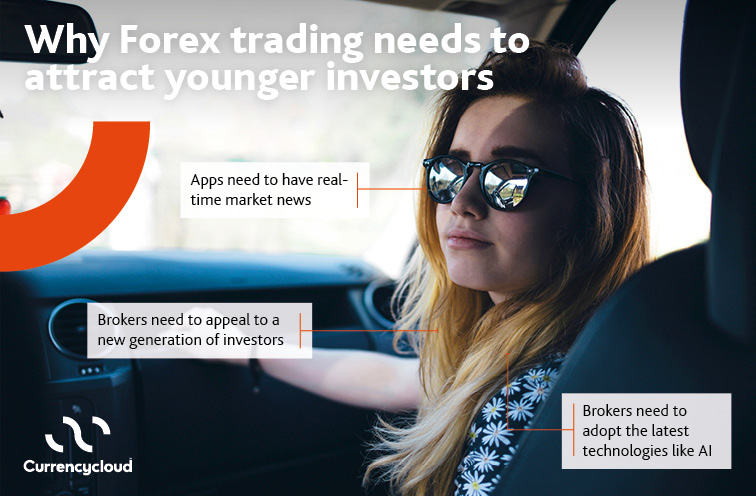The huge success of foreign exchange (Forex) trading has been driven by high levels of liquidity and instant online accessibility 24 hours a day.
The Bank for International Settlements (BIS) reported that average daily trading volumes jumped to their highest-ever level of $6.6 trillion in April 2019, a rise of 29% from the same month in 2016.
Individual investors looking for a return on their money have no shortage of choice in regulated online brokers to make trades through. But aside from some notable incumbents, it has been difficult for brokers to build significant brand loyalty.
That is now about to change, thanks to the impact of technology on Forex trading platforms. While the internet has enabled instant trades and faster payments, the usability of apps and websites have lagged behind those of ecommerce or banking.
- Find out more about wealthtech and the democratization of investments
- Why it’s not too late the win the banking race
The vital issue for brokers is that while hundreds of thousands of users may sign up, it’s difficult to get them to trade even once or twice, let alone on multiple occasions.
A poor investor experience
So why do Forex brokers experience such low conversion rates? One challenge is the fact that many brokers offer a poor experience when investors deposit or withdraw funds, especially when compared with standard ecommerce sites or fintech apps.

As Alex Barr, Director of Fintech at Currencycloud, points out: “The holy grail for ecommerce brands is to move a customer through a journey from initial click to browsing to paying for goods. The goal for brokers is to encourage traders to go further than simply landing on their page to making trades on a regular basis.”
Urgent action is required
Forex brokers need to address this problem urgently because individuals, whether high net worth or not, are being attracted to alternatives offered by a new breed of wealthtech providers. Many wealthtechs provide the capability to trade in currency pairs as well as funds and cryptocurrencies via a modern, easier to use interface.
Meanwhile, the potential addressable customer audience for Forex brokers is growing, particularly in a low-interest investment environment. As Alex Barr points out: “Younger generation investors are looking for ways to secure a return on their money, but will avoid any online broker platform with clunky processes that get in the way.”
Towards frictionless trading
To attract and retain investors, brokers need to make it as easy as possible to sign up, deposit funds into a digital wallet for future trades, enact their Forex trades and withdraw money when they need to, in a timely manner.
They also need to provide a better experience by building information sources, real-time market news and social networking into their apps. This experience should ideally be mirrored as well in mobile mode as on a desktop.
Beyond seamless, mobile and frictionless trading, Forex trading will evolve still further in the future, especially in the area of risk management. Technologies like artificial intelligence and machine learning will enable traders to collect large amounts of data for real-time analysis, which will support more accurate risk decision making and avoid repeating past mistakes. This kind of tool will become ever more sophisticated and powerful, yet easier for everyday traders to use.
As Alex Barr concludes: “Online brokers who want to build customer loyalty and prime conversion ratios need to pay attention to the experience they offer. Those who fail to do so will find a whole new set of fintechs, wealthtechs and digital brokers snapping at their heels.”
Find out how Currencycloud can help your Forex trading business today




